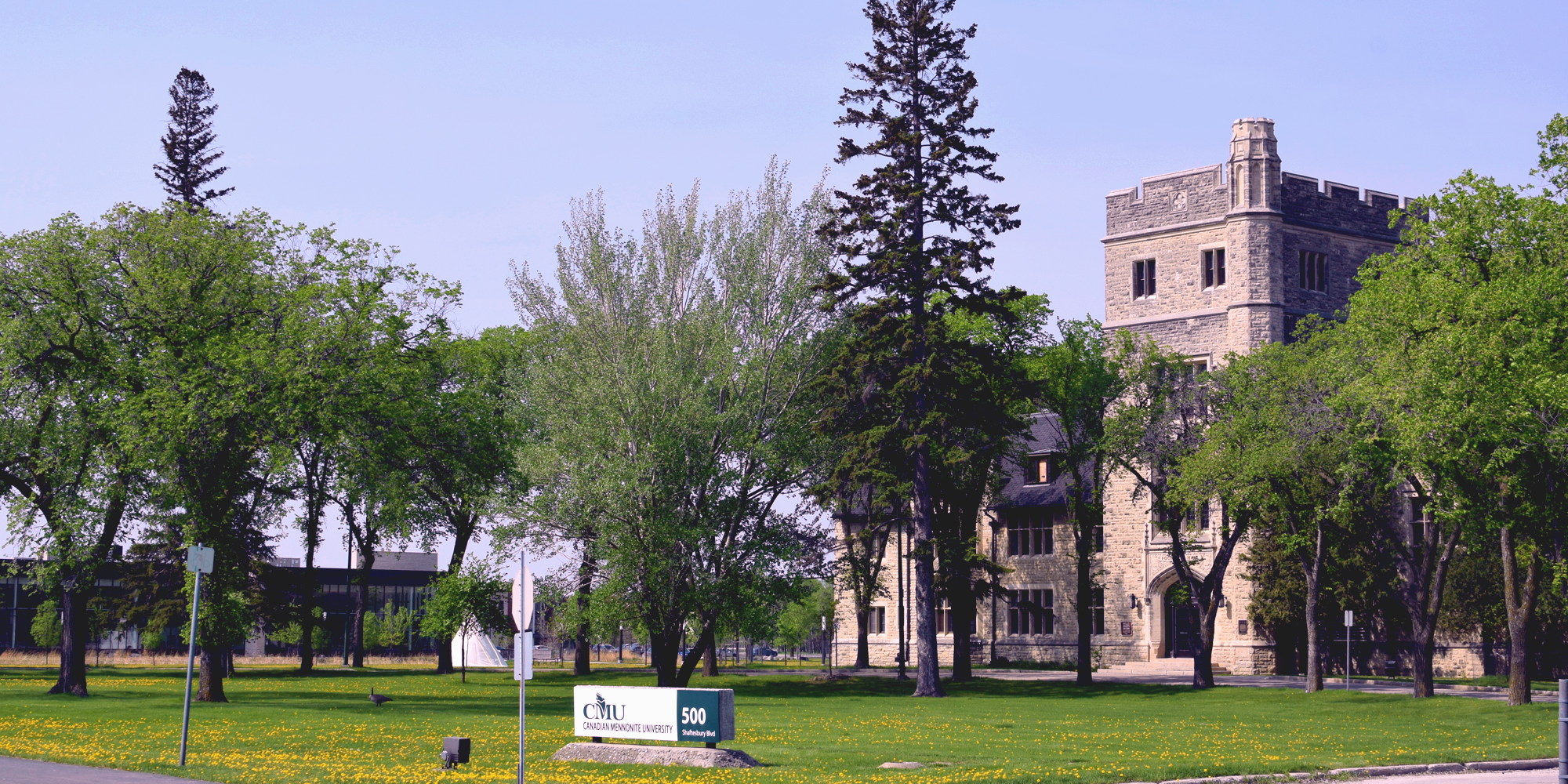A Very Short History of Canadian Mennonite University

Canadian Mennonite University stands in the Anabaptist faith tradition, whose education legacy in Canada reaches back over a century. In 1923, 21,000 Mennonites—known as Russländer—fled violent upheaval in the Soviet Union and joined earlier Mennonite settlers, the Kanadier, who had come at the invitation of the Canadian government in 1874. CMU is beneficiary of the dozens of secondary and post-secondary schools these Mennonites founded across the prairies, which continuously evolved into fewer, more substantive institutions. Less sectarian over time, Mennonite peoples gradually integrated into Canadian society and earned the respect of surrounding communities and governments for economic, humanitarian, and cultural contributions to society at large; along the way Mennonite communities have become attentive to their complicity within Canadian society's assimilationist regime of settler colonialism.
The university itself opened its doors in 2000, formed of a merger of three Mennonite colleges: Canadian Mennonite Bible College (founded 1947), Mennonite Brethren Bible College—later Concord College (founded 1944/1992), and Menno Simons College (founded 1989). Initially known as the Mennonite College Federation, the new institution was established by a public act of the Province of Manitoba just when the Province sought a buyer to revitalize a heritage education building. Today, CMU offers undergraduate and graduate degrees in diverse fields of Arts, Science, Music, Communications, Business Administration, Theology, Peacebuilding, Social Work, and Education. CMU is a member of Universities Canada, receives research funding from SSHRC, NSERC, and CIHR, and holds a Canada Research Chair.
CMU was called into being not to replicate dominant models of higher education, but to offer an alternative—one shaped by practices of peace-justice, hospitality, dialogue, and a deep integration of all manner of life, community, faith, and the intellect. A big part of what CMU teaches is how it teaches—with habits of thinking and doing, by making things—new knowledge—in relationship with others across fields of study, and through cultivating vocation for public and personal good.
Over the years the range of students seeking such an education has diversified greatly. CMU provides a welcoming learning community for students from many faiths and none even as the university sustains close relationships with its founding Mennonite and Mennonite Brethren and many other church and community bodies. Located in Winnipeg on Treaty 1 Territory, CMU strives not only to be a "faith-based" institution but, in the words of President Cheryl Pauls, one that is "love-bound" and "hope-drawn": oriented toward the beauty and pain of reality, honouring the stories through which it is continually learning, and willing to take action into the future with open hands.




 Print This Page
Print This Page